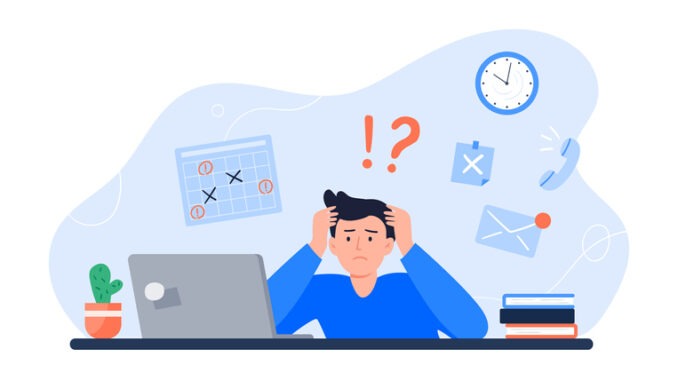
Being prepared for periods of stress can make it easier to get through and help build your mental resilience
CREDIT: This is an edited version of an article that originally appeared on Mind
There are things we can try to build our resilience against stress, but there are also factors that might make it harder to be resilient, such as experiencing discrimination or lacking support.
Barriers to resilience
There are some causes of stress that are beyond our control, and some ways of managing stress and building resilience are not always available to us; this makes dealing with stress very personal. Some experiences that can make it more difficult include:
- Having a long-term physical health condition.
- Having a mental health problem.
- Experiencing discrimination and hate, including racism, homophobia, biphobia or transphobia.
- Living far away from family or friends, or having difficult relationships with them.
- Experiencing loneliness.
- Experiencing poverty and money worries, including debt or problems with benefits.
- Living in an area with poor access to services like healthcare, public transport and green spaces.
- Being a single parent.
- Being a carer.
- Having poor quality housing.
- Lacking safety and protection, such as living in areas with poor policing.
Tips for managing stress – look after your wellbeing
Taking care of your wellbeing can help you feel more able to manage stress. Different things will work for different people, but these are some ideas you could try:
- Be kind to yourself – learning to be kinder to yourself can help with how you feel in different situations. Try to take breaks in your day for things you enjoy, and reward yourself for your achievements.
- Try to find time to relax – this might feel hard if you can’t do anything to stop a situation that is making you stressed -but if you can allow yourself a short break, this can help with how you feel.
- Develop your interests and hobbies – spending time on things you enjoy could help distract you from a stressful situation. If stress is making you feel lonely or isolated, shared hobbies can also be a good way to meet new people.
- Spend time in nature – this can help to reduce stress and improve wellbeing. You could try going for a walk in a green space, taking care of indoor plants, or spending time with animals.
- Look after your physical health – getting enough sleep, staying physically active and eating a balanced diet can make stress easier to manage. Stress can sometimes make these things difficult to look after, but even small changes can make a big difference.
- Build your support network – research shows that having a good support network can help to build resilience and make stress easier to manage. Support from people you trust can make stressful situations easier to manage. This support could include:
- Friends and family – sometimes telling the people close to you how you’re feeling can make a big difference. They might be able to help with some of the things causing you stress.
- Support at work – this may come from your manager, human resources department, union representatives or employee assistance scheme. Your wellbeing is important and responsible employers should take it seriously.
- Peer support – if you’re finding things hard talking to people who have similar feelings or experiences can help. This could be face-to-face at a peer support group, or through an online community like Mind’s side by side.
Identify your triggers
Working out what may trigger stress can help you prepare for it, and knowing what you can and cannot change could help you work out the best way to deal with stress. Take some time to think about situations that might make you feel stressed. You could consider:
- Situations that come up often and that you worry about, such as paying a bill or attending an appointment.
- One-off events that are on your mind a lot, like moving house or taking an exam.
- Ongoing stressful events, like being a carer or experiencing discrimination.
- Something that you are worried about happening again, such as going back to a place that you had a bad experience.
Reflecting on these things may sometimes be upsetting. If remembering or talking about these experiences makes you feel worse, you can stop.
Organise your time
Some of us may feel stressed because we have a lot of things to manage in our lives. In this case, changing the way we organise our time can help us feel more in control. If you think this may help, you could:
- Identify when you have the most energy – do your most important tasks around this time to help you concentrate better.
- Make a to-do list – arrange things in order of importance and try to focus on the most urgent thing first. You might find it helpful to create a timetable, planning when to spend time on each task.
- Set achievable targets – when we feel stressed it’s easy to set ourselves large or unrealistic goals. This might be to try to overcome the situation that is making us feel stressed which can make us feel more stressed and frustrated if we don’t reach the targets we set. Setting smaller, more achievable, goals can help us feel more in control.
- Vary your activities – try to balance boring tasks with more interesting ones and mix up stressful tasks with those you find easier, or that you can do more calmly.
- Manage your workload – if you take on too much you might find it harder to do any individual task well. This could make you feel even more stressed.
- Be clear about your work capacity – it might not always be possible to say ‘No’ to things, or to tell people exactly how you feel – but, if you can, let people know if their demands are unreasonable or unrealistic.
- Take breaks – it might be difficult to do this when you’re stressed but it can help to deal with things better and get through a stressful situation.
- Ask for help – for example, you could ask a friend or family member to help with some of your daily tasks; this can give you more time to spend on any tasks that are making you stressed.



Be the first to comment